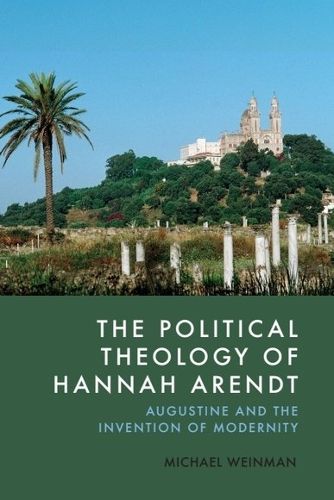Readings Newsletter
Become a Readings Member to make your shopping experience even easier.
Sign in or sign up for free!
You’re not far away from qualifying for FREE standard shipping within Australia
You’ve qualified for FREE standard shipping within Australia
The cart is loading…






The Political Theology of Hannah Arendt clarifies how to understand Arendt's arguments about freedom, collective action, and the problem of evil as political theological, rather than political theoretical or philosophical. To achieve this, Weinman offers a comparative reading of Arendt's engagement with Augustine, from her 1929 dissertation through to The Life of the Mind, which she was working on when she died in 1975. Weinman's innovation is to not only read both works together, but to also read them in light of Arendt's discussion of Augustine in key passages taken from all her works written in the decades between them. Arendt's attempt to reconcile liberal commitments with the Augustinian tradition makes clear why Arendt-and not Carl Schmitt-ought to be read as offering the preeminent response to Max Weber's theory of modernity as inescapably secular, the result of irreversible processes of disenchantment.
$9.00 standard shipping within Australia
FREE standard shipping within Australia for orders over $100.00
Express & International shipping calculated at checkout
The Political Theology of Hannah Arendt clarifies how to understand Arendt's arguments about freedom, collective action, and the problem of evil as political theological, rather than political theoretical or philosophical. To achieve this, Weinman offers a comparative reading of Arendt's engagement with Augustine, from her 1929 dissertation through to The Life of the Mind, which she was working on when she died in 1975. Weinman's innovation is to not only read both works together, but to also read them in light of Arendt's discussion of Augustine in key passages taken from all her works written in the decades between them. Arendt's attempt to reconcile liberal commitments with the Augustinian tradition makes clear why Arendt-and not Carl Schmitt-ought to be read as offering the preeminent response to Max Weber's theory of modernity as inescapably secular, the result of irreversible processes of disenchantment.